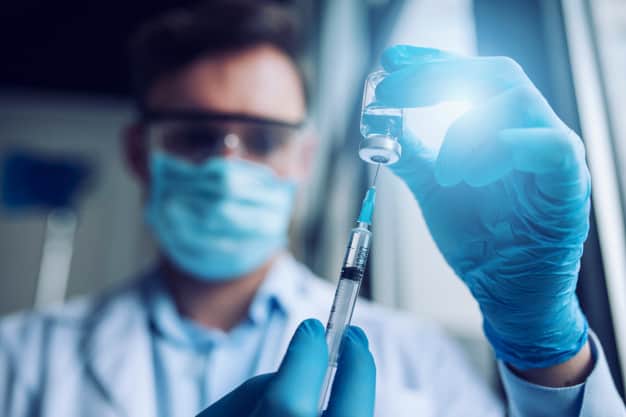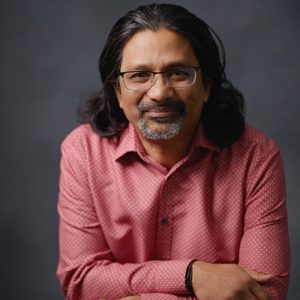 “With the second wave Indian Pharmacy Sector has seen a thrive of 59%, discovery of multiple safe and effective covid-19 vaccines saw an unprecedented push in the industry,” said Dr Montukumar. M. Patel, President, Gujarat State Pharmacy Council. He is also a member of the Pharmacy Council of India, Delhi.
“With the second wave Indian Pharmacy Sector has seen a thrive of 59%, discovery of multiple safe and effective covid-19 vaccines saw an unprecedented push in the industry,” said Dr Montukumar. M. Patel, President, Gujarat State Pharmacy Council. He is also a member of the Pharmacy Council of India, Delhi.
Gujarat State Pharmacy Council (GSPC) is a statutory body constituted by the Government of Gujarat under the Pharmacy Act of 1948, comprising six members elected by registered pharmacists amongst themselves, five members nominated by The Government of Gujarat, three Ex officio members and one member elected by Gujarat Medical Council.
The fresh wave of Covid-19 in the country has pushed up sales of medicines and resulted in exponential growth for the pharmaceutical sector. Interestingly, Montu added that main demand in April 2021 came from Covid-19 drugs such as the much in-demand Remdesivir and favipiravir. These drugs saw renewed demand with the outbreak of the second wave of the pandemic as compared to the year 2020.
Indian Pharmacists have played an efficient role during the surge of COVID-19 pandemic and have been recognized as critical front-line workers in the fight against COVID-19. Hospital pharmacists advised during disaster planning, accelerated training of staff to work in specialised areas and facilitation of medicine supply during a time where supply was weak with the best-practice guidelines rapidly.
“Fourth year Pharm D. students taking internship training in hospitals did a great job to serve the COVID-19 patients. Their continuing face-to-face care provided them with an opportunity for education and counselling for patients along with a risk of exposure to the virus,” said Montu.
Challenges in FY 21 and FY 22
In the second wave, there have been many experienced emergency situations right from the shortage of emergency medicines to the shortage of oxygen cylinders and oxygen concentrators.
“FY 2021 will take the year to end with this new phase and unlock in phases, but the coming year will promise a year for pharmacists. In the next year 2022, we will be more focused on the ways of curbing these and are well prepared if any such situation prevails in the upcoming year.” Said Montu.
The industry is also expecting the COVID-19 vaccine development to have lasting positive effects on future vaccine production and distribution. Thus, creating more demands for pharmacy professionals in various sectors such as production, Manufacturing, Research and Development, Marketing which will create better opportunities for pharmacists.
“But the major challenges during the upcoming year would be the new normal life and the fact that the maximum number of vaccines to be available to the maximum number of people. There are predictions of the third wave which might affect children below 12, so a full-fledged preparation has to be done to minimize or nullify the worst conditions we have faced in the second wave of COVID-19,” said Montu.
Indian Pharmaceutical Sector in Comparison To the World
The Indian Pharmaceutical sector enjoys a good place being the 3rd in worldwide pharmaceutical production and 14th by value by supplying 50% of the global demand of vaccines consisting of 40% of the generic medicines for the US and 25% of all medicines for the UK.
“We have built a rich connection of 3000 drug companies and approximately 10500 manufacturing units. This combination of value and volume provides interesting opportunities for upgrading therapy and treatment levels,” said Montu.
India has also acted as “Pharmacy of the world” in response to the Coronavirus pandemic. India can become a bridge between the developed and the developing nations. India has supplied vaccines to 133 countries across the globe. Montu feels the companies should take the hint and commit to more voluntary partnerships and technology transfer around the world to boost manufacturing, with incentives from their government backers to price the end-product affordably where needed.
Council’s Support to the Industry
Overall, the small-scale pharmacies and the pharmaceutical sector will grow consistently, said Montu.
The council in these tough times helped small scale pharmacists by giving proper guidance about entrepreneurship through conducting webinars lectured by professional consultants. Further queries were also supported and entertained at any point in time by the experts.
As schools shut during the pandemic, the Council had helped to educate the children and explained the importance of sanitation and maintaining safe distances through online platforms at school hours. At college level, students were emphasized to be part of the webinars that were conducted in collaboration with the colleges about various topics related to the COVID-19 turmoil as well as explaining them the importance of vaccination through various online platforms.
In addition, they were also educated to manage certain emergency situations such as treatment and how to take care of the people suffering from COVID-19 or related illnesses and after effects such as mucormycosis , with the medication therapies and mental therapies.
Expectation from the Government and Future
The council which takes part in registering the pharmacist said there were a smaller number of registrations because of the surge of the new phase of the COVID-19 pandemic during the start of the year 2021. As the restrictions are being curbed slowly, a greater number of pharmacists are applying for registration and it is increasing exponentially.
He further added that the pharmacy profession in India will continue to consolidate and strengthen in the times to come. But the threat to the traditional pharmacy business comes from the tech-enabled pharmacies.
“We expect the government to introduce a bridge course where pharmacists can take courses to practise as a healthcare professional providing primary treatment in many rural areas where they are lacking with the healthcare facilities. India, especially Gujarat, is the largest producer of drugs, but still we are lagging behind in API’s. We expect the government to put efforts in accelerating the production of API’s,” said Montu on expectations from the Government.












